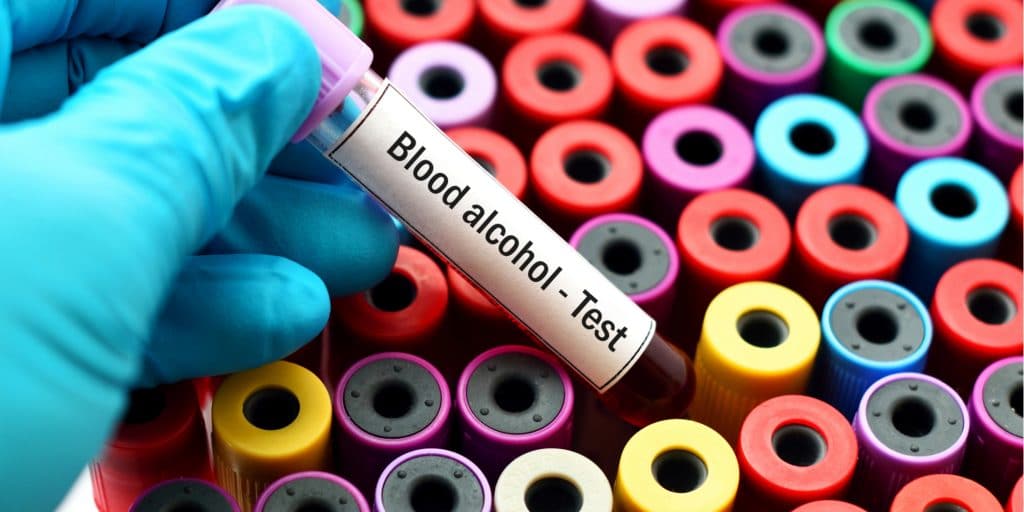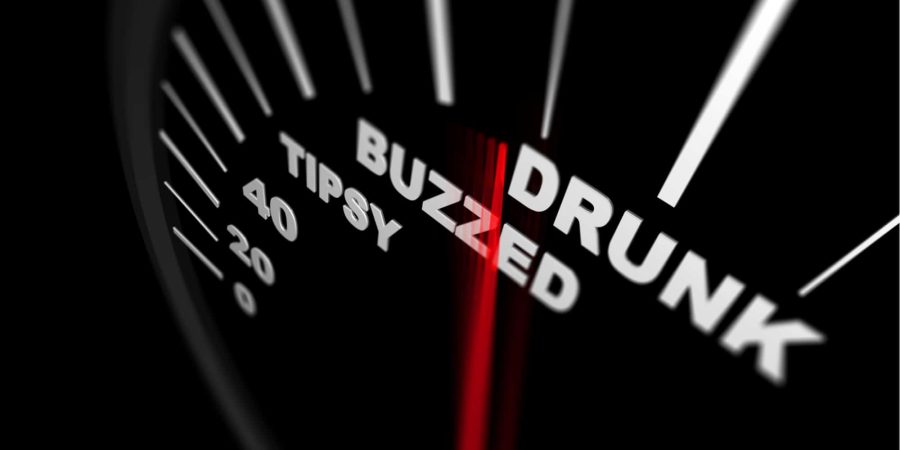
While millions of Americans drink every year, not everyone knows how alcohol affects the body. You probably know how it makes you feel, but what about what it does to you physically and mentally? When gauging whether or not your drinking activity is safe, it’s important to know how your body is reacting.
You can find charts online that give general advice about how to safely drink, but they don’t answer the most important question: How long does alcohol stay in your blood?
Here’s everything you need to know about how long alcohol can stay in your system.
Table of Contents
How Do You Know Your Blood Alcohol Level?


Your blood alcohol content (BAC), otherwise known as the alcohol level in your bloodstream, is often the determining factor in whether or not it is safe to go about your day after drinking.
Alcohol use can be detected in a few different ways: through your urine, breath, hair, saliva, and (for breast feeding mothers) breast milk.
Surprisingly, you can detect alcohol in your hair for months after your last drink. In fact, it can take up to 90 days for your body to break down the alcohol detected in your hair.
You can also detect alcohol in your blood and on your breath even a day after you drink, especially if it’s a large amount. Additionally, you can detect alcohol in urine even days after you’ve had alcohol last. Keep this in mind when considering how alcohol affects you. Most people assume that it stops working on your body once you stop drinking, but its effects can go on much longer than that.
Despite common myths, you can’t actually do anything to make your body metabolize alcohol faster. The rate that your body will absorb alcohol depends on a few different elements:
- Your physical build
- Your age
- How much you’ve had to drink
Additionally, each person has a different reaction to alcohol. Often, that reaction is not even consistent in individuals. So you might respond differently to alcohol one night than you do the next. This is what makes “safe” drinking so hard for so many people.
There are online calculators to might give you a vague answer to your question, “How long does alcohol stay in your blood?” However, these only offer a general guideline and cannot give you completely accurate and safe information.
The best practice is to drink safely and responsibility. This means that you should expect to wait hours after your last drink—depending on how many you’ve had and what type of alcohol you consumed—to even consider driving. Or better yet: find a sober buddy to get you home safely. And if you find yourself consistently worried about how long alcohol stays in your blood, it might be time to re-evaluate your drinking habits.
Alcohol Poisoning Symptoms
While drinking alcohol is often times a social activity and one that is widely accepted in society, it can also be extremely dangerous.
If you binge drink or consume alcohol frequently and in large quantity, you could be at risk for alcohol poisoning. Alcohol poisoning is a severe medical condition that causes permanent brain damage and can even lead to death.
Alcohol poisoning symptoms include:
- Nausea and persistent vomiting
- Slowed breathing
- Extreme fatigue and falling asleep uncontrollably
- Low body temperature
Sadly, alcohol poisoning is really common in people who have an alcohol use disorder and struggle with alcohol addiction. Not only are these symptoms of alcohol poisoning deadly, but the short- and long-term effects of alcohol can have dangerous outcomes as well.
Always be sure to carefully monitor your symptoms when you are drinking. It could be a matter of life or death.
The Effects of Alcohol


According to the National Institute on Alcohol Abuse and Alcoholism, the effects of alcohol can influence both your physical and mental health. These effects can also be short-term as well as long lasting.
Physical Effects of Alcohol Use
You are probably familiar with the short-term physical effects of alcohol if you’ve ever felt “tipsy” or drunk. These include:
- Mental impairment
- Slow reflexes
- Blurred or double vision
- Loss of balance and spatial awareness
- Nausea or vomiting
Long-term effects of alcohol consumption are as follows:
- Brain damage
- Decreased liver function
- Heart conditions
- Iron deficiencies
- Body weakness
- Risk of cancer
The physical effects of drinking alcohol can range from mild to severe. Even if you do not feel that you are intoxicated, your body might still experience these symptoms without you realizing. This is why it’s important to properly assess how long alcohol can stay in your system.
Mental Health Effects of Alcohol Consumption
Drinking alcohol also comes with mental health risks.
Did you know that alcohol is a natural depressant? This means that drinking—whether you drink casually or binge drink—can have a direct impact on your mental health and your mood.
Because alcohol works to slow down your body’s natural responses and cognitive reflexes, it becomes a lot easier to make poor decisions when you are intoxicated.
Additionally, people who are under the influence of alcohol often “have no filter,” meaning that they say what’s on their mind or act on harmful impulses because their body does not allow them to process the reality of the situation that they are in. This can expose you to dangerous situations that could jeopardize your health.
Mood changes that might occur when you use alcohol can look like:
- Making risky decisions
- Confessing secrets
- Sexual promiscuity
- Sudden anger
- Increased anxiety
- Debilitating sadness or depression
Your coworkers, family members, and friends might say things like, “I need a drink,” when they are feeling overwhelmed or have had a particularly long day. They might even sit down with a glass of wine every day after work.
This is a common trend in American culture: using alcohol to cope with stress.
Unfortunately, the mental health and physical consequences of abusing alcohol are very serious and nothing to take lightly.
In fact, alcoholism and addiction are directly linked to co-occurring mental health conditions like depression, anxiety, bipolar disorder, etc. Moreover, some people are naturally predisposed to developing alcoholism, especially if alcohol addiction runs in the family.
If you find yourself turning to alcohol every time you face uncomfortable emotions or difficult situations, you might be struggling with a substance use disorder on top of a mental health condition.
Alcohol Addiction Treatment
Alcohol abuse and addiction is a serious problem that can really affect your mental health and physical well-being. The truth is that alcoholism can impact your mental health, your social happiness, your financial stability, and so much more.
Finding alcohol addiction treatment is essential to keeping you on track toward full-body wellness. If you’re considering alcohol addiction treatment, you will want to find a facility that offers:
- Supervised detox
- Individual therapy
- Process groups
- Family therapy
- Physical activity and recreational options
- Chronic pain help
- Alumni resources
- After-care support for when you leave the program
In Las Vegas, Nevada, the Vance Johnson Recovery Center is prepared to serve you with all of these addiction treatment options and more. We understand how disruptive addiction can be, and we want to help you break free of the pain it can cause.
Contact us by phone at 888-828-2623 or reach out through our confidential contact form to learn more about how we can help you start your lifelong recovery today.
The post How Long Does Alcohol Stay in Your Blood? And Other Facts appeared first on Vance Johnson Recovery Center.
Source
Original Author: Vance Johnson Recovery Center

